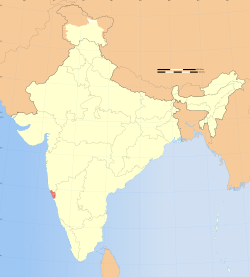The Goa Foundation has, on 29th Jan 2016, sent a citizen dividend proposal to the Goa government, asking for the setting up of a permanent fund with 100% mining revenue and the distribution of citizen dividend from the permanent fund. This proposal fits the main ideals of a citizen ownership democracy.
Here are some details:
Goa (from wiki): "Goa is currently the Republic of India's smallest state by area post the 1974/75 UN treaty and presently has the fourth smallest population. Famously known as Rome of the East it was the capital of historical Portuguese eastern empire (1510 to 1910) followed by an Overseas province status of the Portuguese Republic (1910 to 1974/75)."
Goa Foundation: "The Goa Foundation is the most well known of Goa’s environmental action groups. Founded in 1986 by a group of Goan environmentalists each flighting his or her own individual environmental battles, the organisation today commands the respect of judiciary, government and the general public for persisting with its environment agenda for more than two decades."
The proposal: The link goes to the full proposal. The main ideas are extracted below.
A citizen dividend:
Of course, there is the all important question: what will be the outcome? Will Goa become a citizen-ownership democracy?
Here are some details:
Goa (from wiki): "Goa is currently the Republic of India's smallest state by area post the 1974/75 UN treaty and presently has the fourth smallest population. Famously known as Rome of the East it was the capital of historical Portuguese eastern empire (1510 to 1910) followed by an Overseas province status of the Portuguese Republic (1910 to 1974/75)."
 |
| Goa (map from Wiki) |
The proposal: The link goes to the full proposal. The main ideas are extracted below.
"As far as mining is concerned, there are 3 assets being depleted: (a) the mineral itself, owned by the State in trust for the people and especially future generations; (b) the income associated with mining is an inherited opportunity which we deplete along with the minerals; and (c) the environment, health and other social aspects which can be severely damaged when mining takes place (usually considered under SD)."
"For the first asset, a Permanent Fund – as understood globally – is the appropriate instrument to achieve IE[ intergenerational equity]. To understand the concept, consider selling ancestral gold and purchasing agricultural land – this enables preservation of capital while retaining the potential to earn income. The basic requirements would include: (a) selling the gold for the full market value; (b) using all the proceeds to purchase agricultural land for not more than the market value; and (c) preserving the capabilities of the agricultural land so that the land retains its value. Only then can the crop be consumed."
"By analogy, the Permanent Fund would be set up by the state as a trust on behalf of the people and especially future generations. This would flow from the original ownership of the minerals. It would be funded from the mineral receipts of the state. The Permanent Fund is an endowment fund, with the proviso that income upto inflation be reinvested (to ensure the true permanence or value of the principal for future generations). Ideally, income above inflation should be distributed directly to the people as a Citizens’ Dividend, originating from the right of ownership over the minerals and subsequently the Permanent Fund." (emphasis is mine)How much money is involved? The following is an estimate of just one source of revenue, from the proposal.
"Our calculations from publicly available data show that for the eight year period 2004-05 till 2011-12, the State of Goa has received less than 5% of the value of its iron ore (after considering all associated expenses). This works out to a meagre Rs.2,387 crores when it ought to have earned Rs.53,833 crores. Further, even this trifle was treated as income, not as a capital receipt, leading to a loss. The amounts are in excess of Rs. 3.5 lakhs per man, woman and child. This is clearly not acceptable practice. We cannot cheat our children in this manner. Hence the need for a Permanent Fund in future."That is Rs 350,000 (1 lakh is 100,000), which is more than US$5000. Relative to income in India, this is a lot of money.
A citizen dividend:
"Simply distribute the real income [from the permanent fund] to the owners as a Citizen’s Dividend. This is the only fair way to distribute income from the commons – equally to all."The name: Goenchi Mati Permanent Fund
"We propose that the Supreme Court this permanent fund be extended to cover 100% of receipts from mining, and to cover all minerals, including manganese and bauxite. Consequently, it should also be renamed the Goenchi Mati Permanent Fund (GMPF)."The proposal contains many very good ideas on the mechanisms for a permanent fund. It is a model worth considering for other states, nations or countries.
Of course, there is the all important question: what will be the outcome? Will Goa become a citizen-ownership democracy?
No comments:
Post a Comment